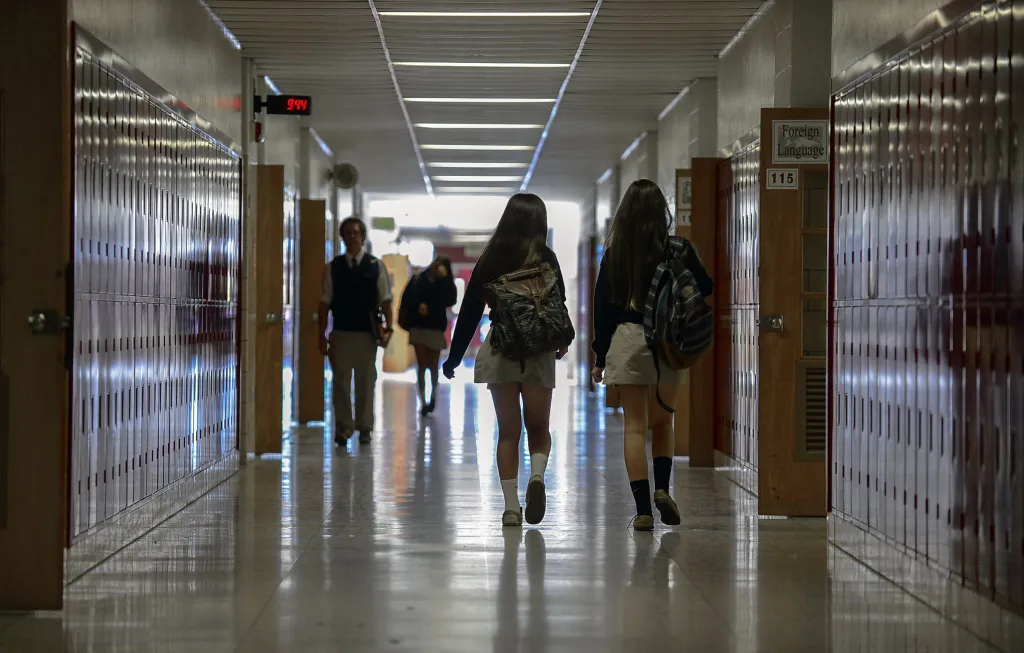Copyright Baltimore Sun

Every two years, Congress releases an evaluation of educational progress known as the Nation’s Report Card. Regrettably, this report may not be one that Maryland would like to showcase on the refrigerator. While there are some data points that provide a hint of optimism, the scores in math and reading for Maryland students remain lower than the performance levels we experienced before the pandemic. As the chancellor of Catholic Schools in the Archdiocese of Baltimore, I am fortunate to observe both the challenges and successes faced by educators in 58 elementary and high schools throughout Maryland, serving over 24,000 students. I understand the hurdles that educators have faced, especially in the aftermath of a devastating pandemic that brought significant logistical challenges and was a traumatic experience for all, particularly our youth. I am grateful to share a positive story in education within our archdiocesan schools and to reflect on the factors that have contributed to equitable and upward growth for our students across Maryland. How are students performing academically in the Archdiocese of Baltimore? Based on the latest Measures of Academic Progress (MAP) scores administered by the Northwest Evaluation Association: In math, our students perform in the top 30% of their peers nationally in achievement in every grade assessed. Our eighth graders performed in the top 10%. (Scoring in the 50th percentile is considered average, and the top 40% is considered prepared for college.) In reading, our students score above the top 20% as compared to their peers nationally in every grade assessed. In language arts, our students score above the top 20% as compared to their peers nationally in every grade assessed, with some grades achieving in the top 10%. Each of our schools is as unique as the students that grow and thrive there, from the suburbs of the Chesapeake to the inner-city schools of Baltimore to the rural communities in the Allegany mountains. Here are some of the factors that our schools have in common that drive success: Attracting and retaining quality teachers It’s well-known that successful students thrive under the guidance of exceptional teachers. In our Catholic schools, educators can dedicate more time to instruction rather than classroom management, which is essential to maintaining high job satisfaction. Although behavior issues and disruptions are to be expected, a significant aspect of our Catholic curriculum focuses on teaching self-worth and respect for others, which helps reduce the time teachers spend managing distractions. Interestingly, many of our teachers could earn higher salaries outside the Catholic education system. However, they choose to work in Catholic schools because it grants them the freedom to excel in their craft. When teachers receive support from the administration and work with students who are eager to learn, they create a culture that fosters job satisfaction and attracts talented, dedicated professionals. Ensuring our students are present both literally and figuratively Our goal is to guarantee that our students are present both physically and mentally. We hold students, families and staff accountable for maintaining attendance. Chronic absenteeism is a well-known challenge faced by schools in Maryland and across the nation. We make it a priority to track our students’ presence each day and in every class to help them stay on the path to success. However, a student who is physically present but distracted by their phone cannot fully engage in the learning process. At the Archdiocese of Baltimore Catholic Schools, we do not allow phones in the classroom during instructional time. Although this decision may be unpopular to some, we believe it is crucial not only for effective teaching but also for fostering our students’ attention spans, which are diminishing in today’s world of constant digital distractions. Emphasizing the holistic development of students At our schools, we prioritize the development of the whole student rather than solely focusing on their performance in standardized tests. Our curriculum is designed to nurture students academically, while also addressing their physical, mental, social and moral growth. Interestingly, only about half of our students identify as Catholic. Families from various faith backgrounds choose our schools because we offer exceptional curriculum and facilities, alongside instilling time-tested values, rooted in our Catholic tradition. We believe it is essential to teach that each student, as a child of God, is unique and extraordinary. This holistic approach fosters a sense of self-worth and purpose in each student, which in turn motivates them to excel academically as they strive to fully utilize their gifts and lead a life with true meaning.



